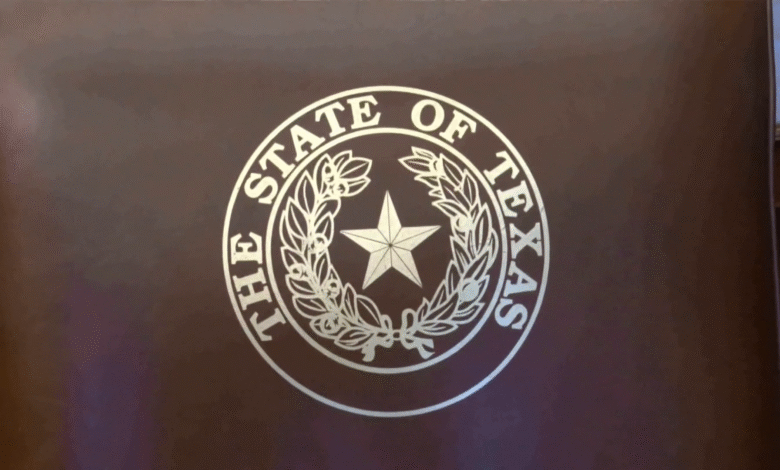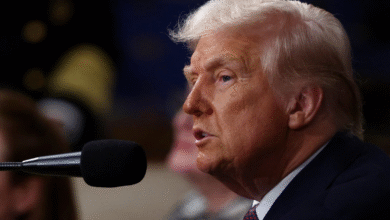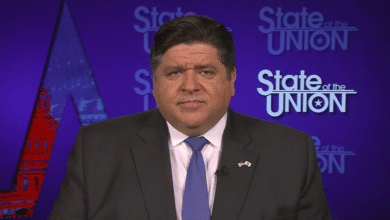Texas Redistricting: Democrats Slam GOP ‘Cheating’ Tactics

In the contentious arena of Texas redistricting, political tensions have reached an all-time high as Texas Republicans push for new congressional maps that many Democrats label as “cheating.” The GOP redistricting efforts, largely led by Governor Greg Abbott, aim to solidify their power in upcoming elections, potentially adding five House seats to their control. Critics, including prominent voices like Senator Bernie Sanders, have joined the chorus condemning these changes as fundamentally undemocratic. With Democrats criticizing redistricting strategies and some fleeing the state to disrupt quorum, the stakes have never been higher. The clashes over these maps encapsulate a broader ideological battle over electoral integrity and representation in Texas, a pivotal battleground state for both parties in the approaching electoral cycle.
The ongoing debate surrounding the Texas congressional map alterations has sparked a vigorous dialogue among political players across the country. As Texas lawmakers engage in strategic maneuvers regarding how district boundaries are drawn, accusations of gerrymandering have emerged, drawing ire from Democrats who assert that such practices undermine equitable representation. Supporters of the newly proposed borders argue that these changes are merely a reflection of demographic shifts since the last census, while opponents feel they threaten the core values of democratic elections. Figures like Bernie Sanders and various Democratic leaders have positioned themselves against what they term as unfair advantages sought by the GOP through redistricting. With the looming threat of legal and political repercussions, the outcome of the Texas redistricting will likely have a profound impact not just in state politics, but on the national stage as well.
Understanding Texas Redistricting and Its Implications
Texas redistricting plays a significant role in shaping the state’s political landscape. Every redistricting cycle, which occurs every ten years following the decennial census, provides an opportunity for political parties to redraw district maps to better reflect demographic changes and to optimize their electoral chances. In recent years, Texas has been at the center of heated debates regarding GOP redistricting practices, which many critics argue favor Republican candidates disproportionately, allowing them to secure an unfair advantage in upcoming elections.
The implications of this redistricting process extend beyond mere politics; they impact representation, voter access, and the overall balance of power within the state. Lawmakers who oppose the GOP’s redistricting initiatives argue that these efforts amount to a form of manipulation designed to suppress minority votes and dilute the influence of Democratic constituencies. Such allegations raise important questions about democracy in Texas and the need for transparent and equitable map-drawing practices.
Democratic Pushback Against GOP Redistricting Efforts
In response to the GOP redistricting proposals, Texas Democrats have mounted a robust counteroffensive, labeling the plans as ‘cheating.’ Key figures like Senator Bernie Sanders have vocalized their discontent, urging constituents to recognize the undemocratic nature of such maneuvers. This pushback includes significant actions, such as the mass exodus of Democratic lawmakers from the state, aimed at denying the Republicans a quorum necessary to pass their contentious redistricting plans.
The situation has ignited a firestorm of political rhetoric, with opponents of the redistricting highlighting how such tactics could further divide the electorate and undermine voters’ rights. By drawing attention to the perceived injustices of the redistricting process, Democrats hope to rally public support and draw national scrutiny, reinforcing their stance against what they see as a Republican power grab.
Impacts of Texas Redistricting on Future Elections
The redistricting outcomes in Texas are poised to have significant impacts on the state’s political dynamics in the upcoming elections. If the proposed maps are validated, they could afford Republicans potentially five additional House seats. This would not only enhance their legislative authority in Texas but also play a crucial role in shaping national congressional dynamics, particularly in closely contested districts.
Polling and political forecasts suggest that as these new district lines are drawn, voters may face challenges in recognizing their representation. Many are concerned that the GOP’s strategic redistricting could lead to increased voter disillusionment, particularly among marginalized communities and Democrats, who may feel increasingly disenfranchised. The argument has been made that such practices don’t just manipulate electoral outcomes but risk eroding public trust in the democratic process itself.
Governor Abbott’s Stance on Redistricting Controversy
Governor Greg Abbott’s reaction to Democratic pushback highlights a rigid political climate in Texas. His threats of arrest against lawmakers who oppose the redistricting measures underscore the high stakes of this legislative battle. Critics argue that such measures to enforce compliance are unprecedented and create an intimidating environment for dissenting lawmakers, further complicating an already polarized issue.
Abbott’s steadfast support for the GOP redistricting plan aligns with broader national trends where Republican governors are championing similar partisan redistricting strategies across the country. This could lead to long-term shifts in how states approach redistricting, with several GOP-led states following Texas’s lead. The refusal to compromise on such fundamental issues of representation showcases the increasingly contentious nature of American politics in this era.
National Repercussions of Texas Redistricting
The redistricting developments in Texas are being closely watched on a national scale, with implications that reach far beyond state lines. Political analysts fear that if Texas Republicans successfully implement their proposed maps, it could set a precedent for gerrymandering tactics nationwide, as other states may seek to replicate successful strategies that tilt the balance of power in their favor.
Under the specter of national scrutiny, the Texas redistricting battle not only symbolizes state-level political maneuvering but also raises broader questions about electoral integrity and the preservation of democratic norms across the United States. As Texas serves as a bellwether for Republican strategies, Democrats in other states may rally their efforts to counter similar initiatives in hopes of safeguarding equitable representation.
The Role of Public Opinion in Texas Redistricting
Public opinion plays a crucial role in shaping the discourse surrounding Texas redistricting. As the controversial maps surface, it’s imperative for lawmakers to gauge how constituents react to potential political shifts. Surveys suggest that many Texans are aware of the ramifications of redistricting, prompting calls for transparency and fairness in the process. Citizens increasingly demand that their representatives uphold ethical standards by ensuring equitable districting practices.
Activism has risen among voting rights advocates and civic organizations, who emphasize the critical importance of citizen engagement in this process. They argue that a well-informed public is essential in holding lawmakers accountable and ensuring that redistricting serves its intended purpose of accurately reflecting the population’s diversity, rather than skewing representation in favor of one party over another.
The Legislative Process Behind Redistricting in Texas
Understanding the legislative process behind redistricting in Texas requires an examination of the key steps involved. Following the census, state lawmakers are tasked with redrawing district maps to accommodate population shifts and uphold the principle of equal representation. This process involves public hearings, input from various stakeholders, and often contentious debates as political entities aim to assert their influence in the drawing of boundary lines.
However, the intricacies of this process can lead to accusations of gerrymandering, particularly when partisan motivations overshadow impartial motives. As Texas lawmakers navigate these challenges, the public’s focus on transparency will be crucial in determining whether the forthcoming maps will be viewed as legitimate or illegitimate. Ongoing scrutiny from advocacy groups and civil society actors promises to keep the conversation around fair representation alive.
Comparative Analysis of Redistricting in Other States
In light of the contentious redistricting battles in Texas, it is prudent to conduct a comparative analysis of how other states approach similar challenges. Democratic-led states have often faced accusations of gerrymandering, prompting discussions about best practices for fair redistricting. Drawing parallels between Texas and states like Illinois, where Governor Pritzker has defended his maps against claims of unfairness, can shed light on the complexities of this issue.
Such comparisons reveal patterns in how political power influences the redistricting process across the country. In several cases, bipartisan commissions have emerged as preferable alternatives, promoting transparency and reducing accusations of partisan manipulation. This analysis encourages Texas lawmakers to consider more equitable approaches to redistricting that could potentially alleviate the partisan strife evident in their current practices.
The Future of Redistricting Beyond Texas
The ongoing redistricting battles in Texas may serve as a harbinger of future electoral conflicts across the United States. As state lawmakers grapple with the implications of their actions, the national discourse will likely focus on transparency, fair representation, and the integrity of democratic processes. This is particularly relevant as a growing number of states reassess their redistricting methodologies to prevent disproportionate advantages from emerging.
Looking ahead, several states may adopt reforms aimed at curtailing partisan bias in map-drawing, fueled by public demand for legitimate representation. The outcomes of these battles in Texas could influence legislative efforts nationwide, inspiring similar movements aimed at redefining the redistricting landscape in a more equitable manner. As civic engagement increases, the push for reform may become a transformative force in safeguarding democracy in America.
Frequently Asked Questions
What is the Texas redistricting process and how does it affect elections?
The Texas redistricting process occurs every ten years following the census, where congressional maps are redrawn to reflect population changes. This process directly influences election outcomes by determining how district lines are drawn, which can favor one party over another. The GOP’s redistricting efforts are criticized for potentially giving Republicans an unfair advantage in upcoming elections.
Why are Democrats criticizing the GOP redistricting efforts in Texas?
Democrats are criticizing GOP redistricting efforts in Texas as ‘cheating’ because they believe these maps unfairly favor Republican candidates, thereby undermining fair representation. High-profile Democrats, including Sen. Bernie Sanders, have spoken out against these tactics, describing them as undemocratic.
How does Greg Abbott’s response impact Texas redistricting efforts?
Texas Governor Greg Abbott’s response, which includes a threat to arrest Democratic lawmakers who leave the state to avoid a quorum, significantly impacts the Texas redistricting efforts. His stance showcases the high-stakes political maneuvering surrounding the legislative process and highlights the conflict between parties over redistricting plans.
What are the potential implications of the Texas redistricting for the GOP?
If the Texas redistricting plan is approved as proposed, it could provide the GOP with an additional five House seats. This potential gain would give Republicans a strategic advantage in future elections, making the redistricting process a crucial focal point for both parties.
What role does federal oversight play in Texas redistricting?
Federal oversight in Texas redistricting is a significant issue, especially after past instances of discriminatory practices. While recent Supreme Court rulings have reduced federal intervention, debates continue regarding the need for monitoring to ensure that redistricting efforts do not disenfranchise voters, particularly minorities.
How can citizens express their concerns regarding Texas redistricting?
Citizens can express their concerns regarding Texas redistricting by contacting their local representatives, participating in public hearings, or engaging in advocacy with organizations that focus on voting rights and fair maps. Grassroots movements often mobilize to raise awareness and influence legislative outcomes during the redistricting process.
What is Sen. Bernie Sanders’ stance on Texas redistricting?
Sen. Bernie Sanders has vocalized that the Texas redistricting effort is both ‘undemocratic’ and ‘outrageous.’ He and other Democrats contend that the maps being proposed are designed to marginalize opposing voters, emphasizing the need for fair representation in the electoral process.
| Key Point | Details |
|---|---|
| Democratic Criticism | Democrats, including Sen. Bernie Sanders, accuse Republicans of ‘cheating’ through redistricting. |
| Governor Abbott’s Threats | Governor Abbott threatens to arrest Democratic lawmakers if they return to the Capitol. |
| Pritzker’s Remarks | Illinois Governor JB Pritzker criticizes Abbott’s actions, claiming it’s an erosion of democracy. |
| Gerrymandering Claims | Pritzker denies that Illinois maps are gerrymandered, stating they are fairly drawn post-census. |
| Potential Impact | If the redistricting plan is approved, Republicans could gain five additional House seats. |
| Democrats’ Strategy | To prevent a quorum, Texas Democrats have left the state to block the redistricting process. |
Summary
Texas redistricting has become a contentious issue, with Democrats vehemently criticizing the Republican-led efforts as unfair and against democratic principles. The situation escalated after Texas Governor Abbott threatened to arrest lawmakers who oppose the redistricting plan. Highlighted by key figures like Sen. Bernie Sanders and Illinois Governor JB Pritzker, this political battle reflects broader concerns about gerrymandering and its implications for future elections. As the struggle over these redrawn maps intensifies, it remains to be seen how it will affect the political landscape in Texas.




